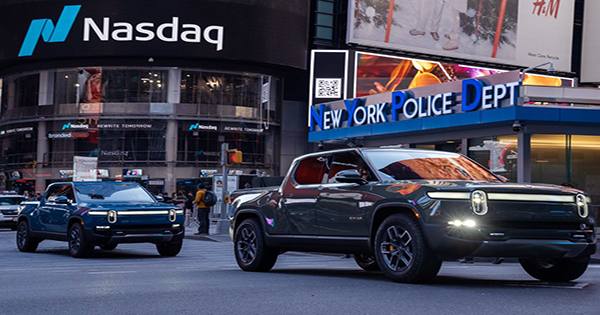Swapping an undriveable automobile for a multibillion-dollar investment in a hot new EV firm would have been a legendary reward for any investor, let alone a government body. Until this year, Space Florida, the state’s aerospace economic development agency, believed it held 3% of Rivian thanks to a clever leaseback deal struck a decade ago.
Based on Rivian’s current market capitalization, that share would have been worth roughly $3 billion following the company’s historic IPO in November, a more than 1,000-fold return on Space Florida’s investment. The roughly $2 million investment involved purchasing prototypes from Rivian in return for warrants in the firm, as well as the cost of purchasing shares.
Instead, according to public data from the agency, Space Florida holds just 60,000 shares in the corporation, valued at less than $7 million, due to a process that neither the agency nor Rivian can explain. So, why did a commercial space launcher become associated with a producer of electric pickup trucks in the first place, and how did its alleged ownership vanish?
Rivian began collaborating with Space Florida before it is known as Rivian — and even before, is known for creating electric vehicles. RJ Scaringe started Mainstream Motors in 2009 as a spin-off from his father’s Rockledge, Florida-based R&D business. His original intention was to create a 60-mile-per-gallon gas-powered coupe and produce it in Florida utilizing lightweight materials and modular manufacturing by the end of 2013.
Scaringe was able to recruit a small team to create a prototype thanks to a $2 million grant from the Florida Energy and Climate Commission. Rivian’s agreement with Space Florida is independent of this. According to Bloomberg, the crew then worked around the clock to prepare drawings for the car, with the exception of the engine. They sent the blueprints, along with a Mini Cooper for the powertrain, to a contract builder in Detroit after they were finished. Scaringe then pulled off what must to have appeared to be a brilliant move. Scaringe sold the company’s initial prototype to Space Florida for $500,000 in June 2010, while it was still only a collection of bespoke and scavenged pieces in Detroit.
In a recent interview with TechCrunch, Dale Ketcham, VP of Space Florida, said, “Originally, there was a possibility that it might bring an automotive manufacturing factory to Florida.” “However, it was the potential off-planet uses, whether on the moon or Mars that sparked our interest.”
When the first prototype, dubbed “The Blue Thing,” landed in Florida in October 2010, Scaringe leased it back to Space Florida for $100 per year. According to Bloomberg, the automobile was not ready to travel on public roads, much alone go into production.
According to data obtained through a Freedom of Information Act request, the corporation could use it for testing and demonstrations, including a (never-implemented) proposal to speed-test it at NASA’s Shuttle Landing Facility in the Kennedy Space Center. Scaringe may repurchase the vehicle from Space Florida for $100 at the end of the 10-year lease.
However, as an “additional compensation,” the business would grant Space Florida a warrant to purchase 100 shares of its common stock for $1,000 per share, redeemable at any point in the following decade, according to filings. “It’s one of the minor things we’d done with other groups in the past,” Ketcham said. “It provided us a small piece of the pie in exchange for some money.” Space Florida also provided a business adviser to the small firm.
Mainstream Motors was renamed Avera by Scaringe. He renamed it again in March 2011, to Rivian, and persuaded Space Florida to renew the contract. The agency would spend $1 million on three more cars and lease them back to Rivian for $100 per year. Rivian gave Space Florida a warrant for 200 more shares at $1,843 apiece this time. That implies Space Florida would have to pay $368,600 to redeem those shares.
Rivian was going through a rough patch. Scaringe was down to a skeleton staff of people and searching for investors. Rivian did not finish the three promised vehicles until June 2014, and it took months longer to start the leasing. Scaringe moved Rivian to Michigan, acquired a plant in Illinois, and put Florida behind him soon after, thanks to a large investment from Saudi Arabia.
He, however, leave a little portion of his business behind, The Rivian warrant agreements documented in Space Florida’s financial statement for the year 2013. It said that the initial warrant for 100 shares “is believed to approximate a 1% ownership stake” in the firm. The second is 200, which “equals a 2% ownership interest.” Space Florida felt its 300 shares represented a full 3% of the nascent firm, albeit one with an uncertain future. Ketcham explained, “We have our investment fund to make such types of investments.” “There isn’t going to be a winner in everything.” If a firm goes bankrupt, you’re out of luck like everyone else.”















